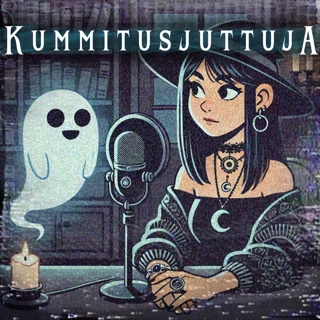
Cuban boxing and the brink of nuclear war
A collection of the latest Witness History programmes which are all about Cuba. Presented by Max Pearson, who speaks to boxing journalist Steve Bunce about the nation's great boxers. Earlier this year, Cuba lifted the ban on professional boxing, which Fidel Castro imposed in 1962. Rachel Naylor speaks to Mike ‘The Rebel’ Perez, who escaped in 2007 after being rewarded with a fizzy drink and two snapper fish after winning a world amateur title for his country. His defection needed the assistance of Mexican gangsters, an Irish promoter with an eye for a winning fighter and a fishing boat. We also hear about a campaign aimed at eradicating illiteracy, a baseball match between Cuba and the US that was an act of diplomacy and the Cuban Missile Crisis which saw the world brought to the brink of nuclear war. (Photo: Cuban boxer Teofilo Stevenson at the 1980 Olympics. Credit: Jerry Cooke via Getty Images)
22 Loka 202252min

Global strikes and industrial action
A collection of the latest Witness History programmes, presented by Max Pearson. We look at moments from around the world when workers took industrial action in pursuit of better conditions from geisha in Japan to tortured wig factory workers in South Korea. This programme contains descriptions of torture.Disney cartoonists went on strike for nine weeks in 1941. They were led by Art Babbitt, Disney’s top animator who created Goofy. The picket line was remarkable for its colourful artwork and support from Hollywood actors.Anousha Sakoui, an entertainment industry writer for the Los Angeles Times discusses the impact of the Disney strikes and significant moments when Hollywood workers fought for their rights. (Photo: Art Babbitt leads Disney animators holding placards with cartoon characters at a film premiere. Credit: Kosti Ruohomaa, a former Disney worker, courtesy of Cowan-Fouts Collection)
15 Loka 202252min

Caribbean carnivals and a racially inclusive nightclub
A collection of this week's Witness History programmes, presented by Max Pearson. The guest is Dr Emily Zobel Marshall. She explains the rise of festivals around the world celebrating Caribbean culture.In 1962, Nigerian man Phil Magbotiwan opened a brand new nightclub in Manchester, UK. In part because of his own personal experiences of racism, Phil wanted to create somewhere where everyone would be welcome – Manchester’s first racially inclusive nightclub. The Reno was born. Phil’s youngest daughter, Lisa Ayegun has been speaking to Matt Pintus about the venue. This programme contains descriptions of racial discrimination.We also hear about how an Israeli solider was brought back home after spending five years in captivity in Gaza, the fall of Slobodan Milosevic and how a low budget film staring musician Jimmy Cliff brought reggae to the world.(Photo: A woman having a good time at Claudia Jones' Caribbean carnival, at St Pancras Town Hall in London, 1959. Credit: Daily Mirror via Getty Images)
8 Loka 202250min

Dassler brothers' rift
A collection of this week's Witness History programmes, presented by Max Pearson. The guest is Nicholas Smith, author of "Kicks: The Great American Story of Sneakers" and Presenter of the BBC's "Sneakernomics" podcast. He explains how footwear revolutionised sport and became high-fashion.In 1948, two brothers from a small German town called Rudi and Adi Dassler created the sportswear firms Puma and Adidas. Reena Stanton-Sharma hears from Adi Dassler’s daughter, Sigi Dassler, who remembers her father's obsession with footwear and talks about her fondness for the rappers, Run-DMC, who paid tribute to her dad’s shoes in a song.We also hear about one man's mission to castrate Pablo Escobar's hippos, the unpredictable rule of Kenya's former President, Jomo Kenyatta, the 'Japanese Schindler', and the raising of the 400-year-old Mary Rose.(Photo: Adi Dassler. Credit: Brauner/ullstein bild via Getty Images)
1 Loka 202251min

Queen Elizabeth II and broadcasting
We look at some of the broadcasts delivered by Queen Elizabeth II including her first radio address to the children of the Commonwealth on 13 October 1940. Former BBC royal correspondent Jennie Bond looks back on the Queen's significant moments in front of a microphone. Pope Paul VI's first visit to Africa when he travelled to Uganda in 1969, and was hosted by an Ismaili Muslim family and the start of the Iran-Iraq war in September 1980.(Photo: Princess Elizabeth makes a broadcast from the gardens of Government House in Cape Town, South Africa, on her 21st birthday. Credit: BBC)
24 Syys 202251min

Queen Elizabeth II
We hear personal accounts of historical moments during the seventy year reign of Queen Elizabeth II. Memories from the Queen's maids of honour from her coronation in 1953; the huge race her horse very nearly won as well as the Windsor Castle fire and the opening to the public of Buckingham Palace.Presented by Max Pearson.(Photo: Queen Elizabeth II. Credit: Getty Images)
18 Syys 202250min

Brazil
Stories from Brazil, ahead of the presidential election in October, including the murder of Tim Lopes, the hero of Brazilian democracy and the Candelaria Massacre.Plus the creation of the capital, Brasilia, and the history of the Fusca - the car that charmed Brazil.This programme contains descriptions of violence and some listeners may find parts of it distressing.(Photo: Christ the Redeemer statue in Rio de Janeiro. Credit: Buena Vista Images)
11 Syys 202251min

Gorbachev's legacy
The former President of the Soviet Union's reforms in 1987, known as Perestroika, and the release of the dissident poet Irina Ratushinskaya in 1986.Plus a survivor of the Marikana Massacre in South Africa, the Native American nicknamed 'the Last Indian' and Princess Diana's dance with John Travolta at the White House.(Photo: Mikhail Gorbachev (centre right) meets with the Warsaw Pact Foreign Ministers' Committee in Moscow in 1987. Credit: AFP / Getty Images)
3 Syys 202249min





















